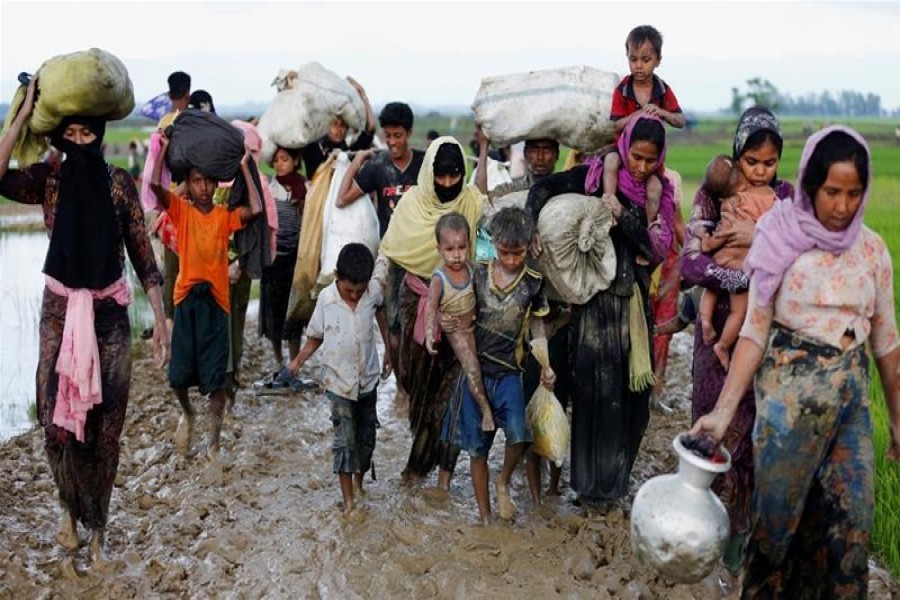As the repatriation of Rohingyas looks a long way off, the host country Bangladesh is poised to face a tough challenge in ensuring their safety in the temporary camps during the monsoon. Another daunting problem is that international assistance for the refugees is also on the decline. Natural disasters like floods, landslide and cyclones are likely to occur in the region where their camps are located with the advent of the rainy season. Different national and international agencies fear that if the Rohingyas cannot be relocated to safer shelters, disaster will strike the camps.
However, the Bangladesh foreign ministry has said that the government has an elaborate plan to face such difficult challenges. It added that new land has been allotted for rehabilitating the Rohingyas for their safety. Additionally, an approach road to mega-camp has been built with the help of the army. The government, at the same time, reiterated Bangladesh's stand on safe and dignified return of these forcibly displaced people to Myanmar. Bangladesh has kept open bilateral, multilateral and civil-society windows to mount pressure on Myanmar for taking their people back as soon as possible.
Many experts have suggested that the government of Bangladesh should convene a conference of the countries sheltering the Rohingyas, including India, Pakistan, Saudi Arabia and several other Middle-Eastern countries, Thailand, Indonesia, Malaysia and Japan. The conference should be held on two levels: first, all the countries where Rohingyas have taken refuge should be brought together and (ii) secondly, an international conference should be organised within or outside the ambit of the United Nations (UN) to settle the matter.
There are three challenges to be underlined to resolve the Rohingya crisis, which include, among others: (i) crafting regional consent, (ii) ensuring international responsibility, and (iii) securing civilian support. This is the best time to put into practice the well-known doctrine of Bangladesh foreign policy: "Friendship to all and malice towards none". Some efforts have apparently been made through the Prime Minister's visit to the Association of South East Asian Nations (ASEAN) countries, including Cambodia and Singapore.
International relations experts suggest taking the issue to the United Nations General Assembly (UNGA) for establishing "special documentation centre" so that international legal instruments on genocide or ethnic cleansing or crime against humanity could be activated and the perpetrators brought before an international tribunal for trial.
The Rohingya crisis is an issue of norms and values, rules and regulations, decency and civility and, indeed, an issue of human dignity. It refers to international responsibility to ensure justice to a population that has lost everything, even to dream and live a life of its own. The fresh influx of over 700,000 Rohingya people into Bangladesh since August 25, 2017 is a huge burden on the country which one cannot expect Bangladesh, a geographically small country with an area of 147,570 km² having already 160 million people, to carry alone. As this crisis seems to be prolonging, we can no longer focus only on lifesaving support to the Rohingyas. We must start to consider support beyond emergency support to strengthen the resilience of Rohingya people to cope with such protracted shock. The international community needs to understand that a quick solution to the Rohingya problem, however, is urgent and necessary.
Sarwar Md. Saifullah Khaled is a retired Professor of Economics, BCS General Education Cadre.


